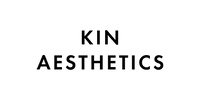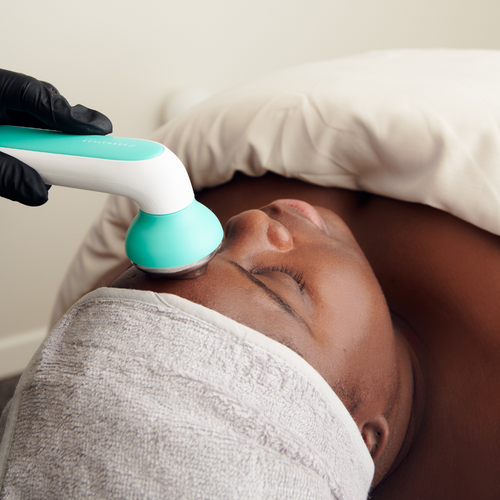Acne is one of the most common and complex skin conditions that estheticians encounter. While traditional treatments often focus on surface-level solutions, a holistic approach rooted in Korean skincare methodology offers a deeper, more comprehensive strategy. By addressing genetic predispositions, lifestyle factors, and internal health, estheticians can help clients achieve long-term clarity and balance. Below, we’ll explore some of the best practices for treating acne through a holistic lens, incorporating insights into genetics, stress, diet, gut health, and advanced skincare techniques.
Understanding Genetic Predispositions and Acne
Genetics play a significant role in determining an individual’s susceptibility to acne. One key factor is the hyperproliferation of keratinocytes, which can lead to clogged pores and subsequent breakouts. This overproduction of skin cells is often hereditary, as is an individual’s baseline sebum production. Additionally, genetic predispositions can influence inflammatory responses, making certain individuals more prone to persistent, inflamed acne lesions.
Understanding a client’s genetic background can guide treatment strategies in profound ways. Genetic predispositions often reveal patterns in the type, severity, and triggers of acne.
For example, clients with a family history of cystic acne may have a heightened inflammatory response to sebum and bacteria within pores. Knowing this, we can prioritize treatments and products that address inflammation and barrier support rather than relying solely on harsh, drying ingredients that may exacerbate sensitivity.
Clients with a genetic tendency toward oily skin may benefit from early and consistent use of ingredients like niacinamide to regulate sebum production and reduce the likelihood of clogged pores.
Additionally, we can educate clients (who need it) on the importance of regular exfoliation using non-abrasive methods—such as enzymatic or gentle chemical exfoliants like lactic acid or mandelic acid—to manage keratinocyte buildup without compromising skin integrity. By understanding the hereditary factors that influence acne, we can take a preventative approach, offering personalized regimens that mitigate triggers before breakouts occur.
Diseases and Conditions Linked to Acne
Certain medical conditions can exacerbate acne, and recognizing these underlying issues is crucial. Polycystic ovary syndrome (PCOS), for example, is a hormonal disorder that often leads to cystic acne, particularly along the jawline and chin. Similarly, conditions like insulin resistance and thyroid imbalances can affect skin health.
While we are not medical practitioners, they can work collaboratively with clients and their healthcare providers to ensure a comprehensive treatment plan. Products containing anti-inflammatory ingredients such as centella asiatica and green tea extract can soothe hormonal breakouts, while targeted treatments with salicylic acid can address congestion without overly drying the skin.
The Impact of Stress on Acne
Stress is a well-documented trigger for acne, as it prompts the release of cortisol, a hormone that can increase sebum production and inflammation. Chronic stress disrupts the skin’s barrier function, making it more susceptible to breakouts and irritation. From a technical perspective, cortisol can influence the sebaceous glands to overproduce sebum, creating an ideal environment for Cutibacterium acnes (C. acnes) bacteria to thrive. Additionally, stress-related inflammatory mediators can exacerbate existing lesions, leading to longer healing times and increased risk of scarring.
Stress also compromises the production of ceramides, essential lipids that maintain the skin’s barrier integrity. A weakened barrier allows irritants and bacteria to penetrate more easily, further aggravating acne-prone skin. This physiological cascade underscores the importance of addressing stress as part of a holistic acne treatment strategy.
Holistic acne treatment should include stress management strategies. We can recommend mindfulness practices such as meditation or yoga, which are known to reduce cortisol levels. Topically, products rich in adaptogens, like ginseng, can help support the skin during times of stress. Offering clients relaxing facial treatments that incorporate lymphatic drainage or gua sha can also promote relaxation while improving circulation and reducing inflammation.
Diet, Gut Health, and Acne
The connection between diet, gut health, and acne is increasingly supported by research. High-glycemic foods, dairy, and processed snacks can contribute to hormonal fluctuations and inflammation, exacerbating acne. An imbalanced gut microbiome can also influence skin health, as gut dysbiosis often manifests as inflammation and increased skin sensitivity.
We can guide clients toward skin-friendly dietary habits by recommending foods rich in omega-3 fatty acids, antioxidants, and probiotics. Encouraging clients to stay hydrated and reduce sugar intake can also yield significant improvements. Topically, incorporating prebiotics and probiotics in skincare, such as products containing lactobacillus ferment, can help balance the skin’s microbiome and reduce inflammation.
Advanced Korean Skincare Techniques
Korean skincare’s emphasis on prevention and gentle, consistent care makes it uniquely suited for treating acne holistically. Gentle routines allow for targeted treatments without overwhelming the skin. Key practices include:
-
Double Cleansing: Using an oil-based cleanser followed by a water-based one effectively removes impurities without stripping the skin, a crucial step for acne-prone clients.
-
Layering Hydration: Lightweight hydrating products such as essences and serums can help maintain skin barrier integrity, reducing sensitivity and inflammation.
-
Spot Treatments: Ingredients like tea tree oil and beta-glucan provide antimicrobial and soothing benefits, making them ideal for active breakouts.
-
Sheet Masks: Calming masks infused with mugwort, chamomile, or aloe vera can provide immediate relief for inflamed skin.
The Holistic Esthetician’s Approach
Treating acne holistically requires patience, education, and a commitment to understanding the client’s unique needs. We should focus on creating customized treatment plans that address both external symptoms and internal triggers. Regular check-ins with clients can help track progress and make necessary adjustments.
By combining the best of Korean skincare’s gentle, layered methodology with insights into genetics, stress management, and gut health, we can provide truly transformative care. Acne may be complex, but with a thoughtful, holistic approach, clear and healthy skin is within reach for every client.
If you're feeling lost, or would like to learn more on this multifactorial skin condition we recommend the MBK Acne Detective Course. This program is a wealth of information and once you've signed up you'll have access to their exclusive Facebook group for further support.



